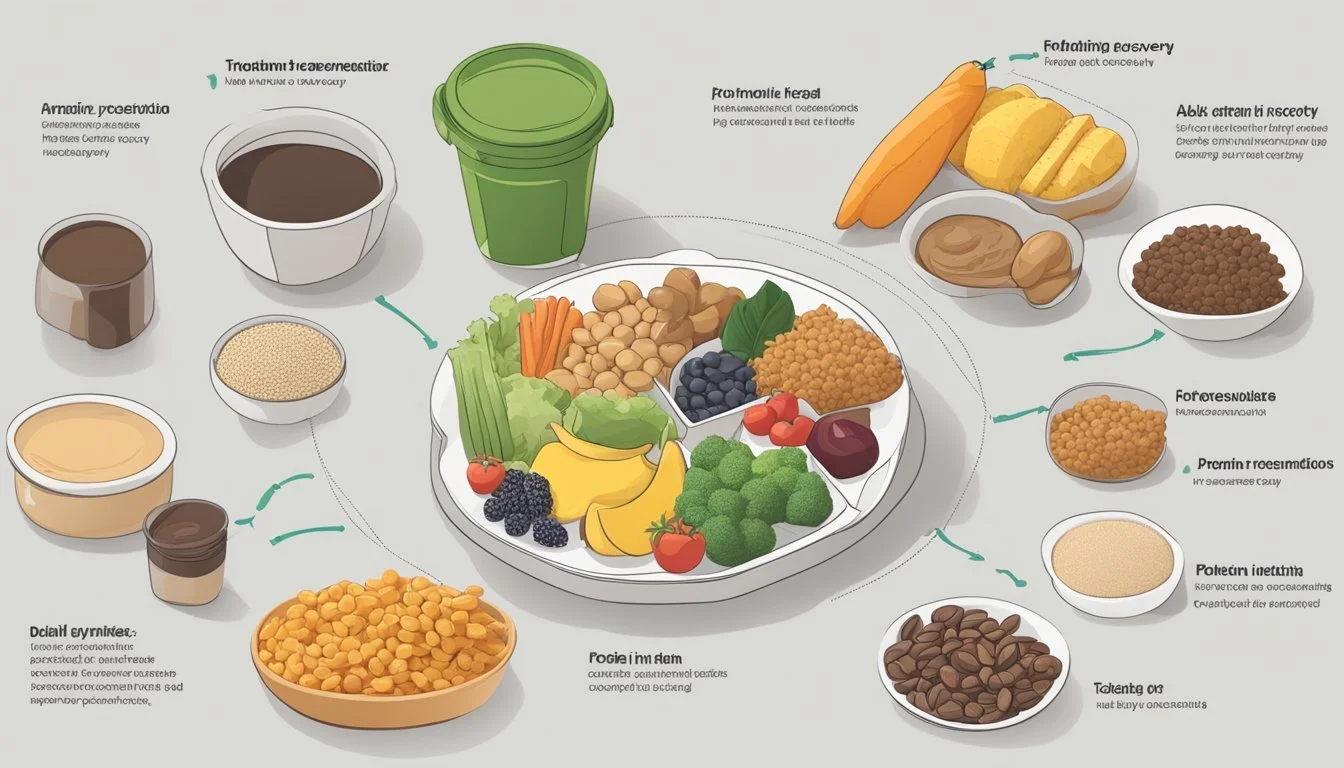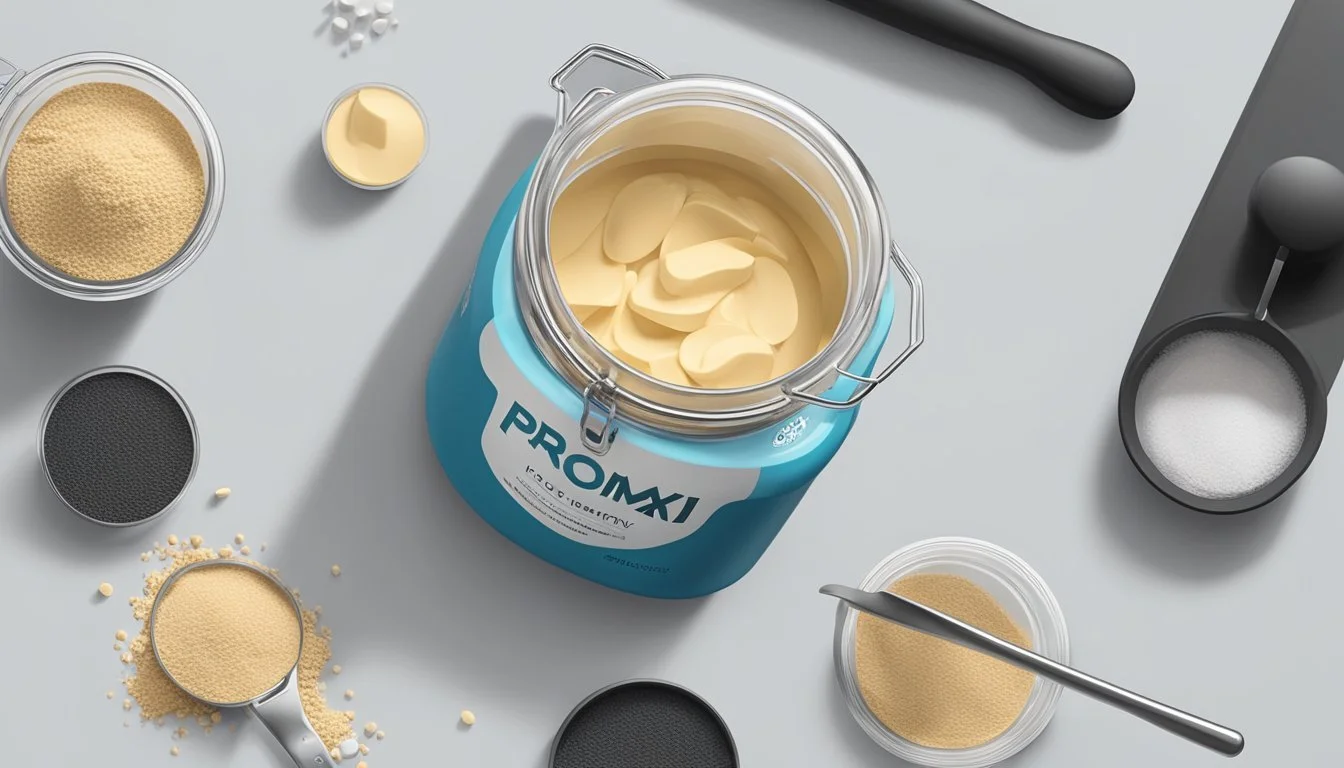How Many Servings of Promix Recovery Protein Is Too Much
Expert Guidelines
Determining the appropriate number of servings of Promix Recovery Protein is crucial for maximizing its benefits while avoiding potential issues. As a general guideline, it is essential to consider factors such as daily protein requirements, activity levels, and overall diet composition. The consensus among nutrition experts is that consuming more than two servings per day of Promix Recovery Protein can be excessive for most individuals.
Promix Recovery Protein provides a substantial amount of protein per serving, meeting the needs of those engaged in intense physical activity. Overconsumption, however, can lead to gastrointestinal discomfort and nutrient imbalances. It's important to balance protein intake from various sources to ensure all nutritional needs are met without over-relying on supplements.
To find the right balance, individuals should calculate their daily protein needs based on body weight and activity level, and then determine how much of that can be reasonably supplied by Promix Recovery Protein. Consulting with a healthcare provider or nutritionist can also provide personalized recommendations tailored to individual dietary needs and health goals.
Understanding Proteins and Their Importance
Proteins are a fundamental macronutrient essential for various bodily functions. They serve as the building blocks of tissues, including muscles, skin, and organs.
These macronutrients are made up of smaller units called amino acids. There are 20 amino acids, nine of which are essential and must be obtained through the diet.
Muscle protein synthesis is a key process where protein intake helps build and repair muscle mass. Consuming adequate protein can support athletic performance and recovery.
Daily protein requirements can vary based on factors like age, gender, and physical activity level. For example, untrained, healthy adults are recommended to consume around 0.8 grams of protein per kilogram of body weight.
For individuals engaged in regular physical activity or strength training, protein needs may increase. Consuming protein post-exercise can aid in repairing and rebuilding muscle tissue.
Various sources of dietary protein include meat, fish, dairy products, legumes, and protein supplements. Protein supplements like Promix can provide a convenient way to meet these increased needs.
To avoid any adverse effects from excessive protein intake, it is essential to adhere to recommended guidelines. For instance, supplements should not make up more than 35% of daily protein intake.
Understanding the role of proteins and correctly balancing protein intake can support overall health, tissue repair, and muscle growth. Proper knowledge and application ensure the maximization of protein's benefits.
Daily Protein Intake Recommendations
Determining the appropriate daily protein intake is essential for maintaining overall health and optimizing physical performance. The following sections provide detailed guidance on recommended dietary allowances and specific protein needs based on individual factors and activity levels.
Recommended Dietary Allowance (RDA) for Protein
The Recommended Dietary Allowance (RDA) for protein is set to ensure individuals meet their basic nutritional needs. For the average adult, the RDA is 0.8 grams of protein per kilogram of body weight. This translates to about 0.36 grams per pound.
For example, a person weighing 70 kilograms (154 pounds) would need approximately 56 grams of protein per day.
These values are designed to prevent deficiencies but do not necessarily reflect optimal amounts for various lifestyles or activity levels.
Determining Individual Protein Needs
Protein requirements can differ significantly based on age, weight, and activity level. A registered dietitian can help tailor these needs more precisely. For general guidance, the range often suggested is 0.8 to 1.8 grams per kilogram of body weight.
Key factors include current body weight, metabolic rate, and overall health. For someone weighing 60 kilograms, this range would equate to 48 to 108 grams of protein daily.
Personal preferences and dietary restrictions can also influence protein choices, making individualized advice crucial.
Protein Needs for Active People and Athletes
Active individuals, particularly athletes, have higher protein requirements to support muscle repair and growth. For these groups, intakes between 1.6 and 2.2 grams per kilogram of body weight are recommended.
For instance, an athlete weighing 80 kilograms might need between 128 and 176 grams of protein per day. These amounts help with recovery, performance enhancement, and overall muscle maintenance.
Elite athletes or those in intensive training may need even more, and it's best to seek advice from a sports dietitian to fine-tune their diet accurately.
Proper protein intake is crucial to ensure physical health and performance for active lifestyles.
Promix Recovery Protein Overview
Promix Recovery Protein offers a comprehensive solution for those aiming to enhance muscle recovery and growth. This section covers details about its ingredients, nutrient profile, benefits for muscle recovery, and optimal usage guidelines.
Ingredients and Nutrient Profile
Promix Recovery Protein is known for its clean and potent ingredients. Each serving typically provides 25 to 30 grams of protein, derived primarily from high-quality whey protein.
The product is free from artificial additives and sweeteners, making it a healthier choice. Ingredients often include probiotics and digestive enzymes, which aid in better nutrient absorption and gut health. A typical serving also contains essential amino acids, which are crucial for muscle protein synthesis and recovery.
Benefits for Muscle Recovery
Promix Recovery Protein is specifically formulated to support muscle recovery post-workout. Consuming it after intense exercise helps replenish glycogen stores and repair muscle fibers.
The high protein content contributes significantly to muscle protein synthesis, a key process in muscle building and repair. Additionally, the inclusion of essential amino acids ensures that the body has the necessary components to effectively rebuild and grow muscle tissues. This makes it ideal for athletes and fitness enthusiasts looking to maximize their recovery potential.
Optimal Usage Guidelines
To get the most out of Promix Recovery Protein, it's important to follow optimal usage guidelines. It's generally recommended to consume one serving within 30 minutes post-workout. This timing helps in the efficient uptake of nutrients by the muscles.
For those engaged in heavy training, up to two servings per day can be beneficial. Always mix the protein powder with water or a beverage of your choice for best results. Adjust the serving size based on your individual protein needs, which can vary depending on your weight, workout intensity, and fitness goals.
Incorporating Promix Recovery Protein into your daily routine can significantly aid in muscle recovery and growth, provided you stick to the recommended guidelines.
Risks of Excessive Protein Intake
Excessive protein intake can lead to several health issues, creating more harm than benefit. Key concerns include impacts on kidney health, potential cardiovascular risks, and digestive health problems such as dehydration.
Impact on Kidney Health
Excessive protein intake can strain the kidneys, particularly in individuals predisposed to kidney disease. The kidneys are responsible for filtering waste products like urea, which is a byproduct of protein metabolism. Overloading the kidneys with high amounts of protein can lead to kidney stones and long-term kidney damage.
Increased protein in the diet requires the kidneys to work harder, potentially accelerating the decline of kidney function. Individuals with existing kidney issues should be particularly cautious about their protein consumption. It's essential to balance protein intake to avoid overtaxing the kidneys.
Potential Cardiovascular Concerns
High-protein diets, especially those including red and processed meats, can increase levels of total fat and saturated fat intake. This can elevate blood lipids and contribute to heart disease. Saturated fats are known to raise cholesterol levels, potentially leading to atherosclerosis and other cardiovascular issues.
Proteins from plant sources tend to have a more favorable impact on cardiovascular health. Thus, the type of protein consumed matters. Lean meats, fish, and plant-based proteins are generally better options for maintaining heart health.
Digestive Health and Dehydration
Excessive protein intake can cause digestive issues such as constipation, diarrhea, and bloating. High-protein diets often lack sufficient fiber, which is crucial for maintaining digestive health. Including a variety of nutrient-dense, fiber-rich foods helps mitigate these problems.
In addition to digestive problems, high protein intake can lead to dehydration. Protein metabolism requires more water, leading to increased urine production. It's crucial to drink plenty of water to offset this risk and prevent dehydration-related issues like kidney stones.
Maintaining hydration is essential, especially for those with high protein consumption, as adequate water intake supports kidney function and overall health. High protein intake must be balanced with other nutrients and sufficient water to avoid negative consequences.
Balancing Protein with Other Nutrients
When consuming Promix recovery protein, it's crucial to balance protein intake with other essential nutrients. This helps in maintaining overall well-being and optimizing physical performance.
Importance of a Varied Diet
A varied diet ensures that the body receives a broad range of nutrients needed for energy, metabolism, and muscle health. While protein is vital for muscle repair and growth, it's important not to neglect other food groups.
Incorporating fruits, vegetables, grains, and dairy can provide essential vitamins and minerals that protein shakes alone might lack. A diet rich in different nutrients can help prevent deficiencies and promote long-term health.
Carbohydrates, Fats, and Fiber
Balancing protein with carbohydrates, fats, and fiber is key to supporting energy levels and overall metabolism. Carbohydrates are the body's primary energy source, necessary for both daily activities and intense workouts. They help fuel muscle recovery and enhance performance.
Healthy fats such as those from nuts, seeds, and avocados are crucial for hormonal balance and saturated fat intake should be limited to maintain cardiovascular health. Fiber, found in whole grains, fruits, and vegetables, aids digestion and helps maintain a healthy weight.
In summary, while Promix recovery protein supports muscle recovery, a well-rounded diet that includes carbohydrates, fats, and fiber ensures balanced nutrition and overall health.
Quality Sources of Dietary Protein
Quality sources of dietary protein are essential for muscle growth, recovery, and overall health. This section discusses both animal-based and plant-based proteins, highlighting key examples and their benefits.
Animal-Based Proteins
Animal-based proteins are complete proteins, providing all essential amino acids. Chicken breast is a lean option, offering high protein with minimal fat. Turkey and lean meats like beef and pork are also excellent sources. Fish and seafood, such as salmon and tuna, provide not only protein but also beneficial omega-3 fatty acids.
Eggs are versatile, nutrient-dense, and can be included in various meals. Dairy products like milk, yogurt, and Greek yogurt contribute to daily protein intake. These foods support muscle repair, immune function, and overall energy levels.
Plant-Based Proteins
Plant-based proteins can also offer complete nutrition. Beans and legumes, such as lentils, are high in protein and fiber, supporting digestive health. Nuts and seeds, like almonds and chia seeds, are rich in protein and healthy fats.
Whole grains such as quinoa provide a good protein source with additional vitamins and minerals. Vegetables like broccoli and spinach contribute to protein intake as well. Combining different plant-based proteins, such as rice and beans, ensures a complete amino acid profile beneficial for overall health.
Signs of Overconsumption and Moderation Strategies
Consuming too much Promix recovery protein can lead to uncomfortable symptoms and potential health issues. Recognizing these signs early and adjusting intake accordingly can help maintain a healthy balance.
Recognizing Symptoms of Excess Protein
Consuming more protein than the body needs can lead to several symptoms. These symptoms include GI discomfort such as constipation, nausea, diarrhea, and stomach pain. Eating too much protein can also cause bad breath due to ketosis, a metabolic state where the body burns fat for energy. Excess protein may also lead to weight gain if caloric intake exceeds what is burned off through activity. Some individuals might notice fatigue or a reduced desire to ingest other vital nutrients because high protein intake can make one feel full, reducing the overall appetite for a balanced diet.
How to Adjust Protein Intake
Respecting daily protein recommendations is essential for avoiding overconsumption. The National Academies of Sciences, Engineering, and Medicine suggest that protein should make up 10-35% of daily caloric intake, or about 50-175 grams, depending on individual needs such as body composition and muscle growth goals.
To moderate protein intake, consider portion control strategies. For instance, measure servings to ensure they align with dietary guidelines. Variation of protein sources can also help; mixing plant and animal proteins ensures a balanced nutrient intake. Tracking daily consumption with apps or food logs can keep protein levels in check.
If symptoms persist despite these efforts, consulting a healthcare provider is advisable. They can offer personalized recommendations based on specific dietary needs and health conditions.
Consulting Healthcare Professionals
When considering how many servings of Promix Recovery Protein to consume, it is crucial to consult healthcare professionals. This includes registered dietitians and physicians who can provide personalized advice based on individual health needs.
People with kidney problems should be particularly cautious. Too much protein can exacerbate kidney issues. A healthcare professional can help assess appropriate protein intake.
The Dietary Guidelines for Americans recommend different protein needs based on age, sex, and activity level. For example, adult men and women have varying Recommended Dietary Allowances (RDA):
Men: 56 grams per day
Women: 46 grams per day
A dietitian can help translate these guidelines into safe serving sizes of protein supplements.
For athletes or those with higher protein needs, registered dietitians can create customized plans. This ensures protein intake supports goals without excess that might harm health.
Use caution and seek professional advice to balance Promix Recovery Protein intake with dietary requirements and health conditions.








